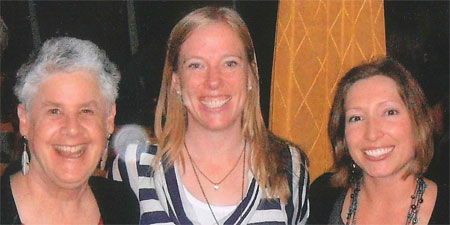Maureen Weiss, Ph.D., professor of kinesiology, and her colleagues Nicole Bolter (Ph.D., 2010, UMN) and Lindsay Kipp (Ph.D., 2012, UMN) are recipients of the Society for Health and Physical Education Research Council’s Research Writing Award for their article, “Assessing impact of physical activity-based youth development programs: Validation of the Life Skills Transfer Survey.” The article was published in Volume 85 of Research Quarterly for Exercise and Sport (RQES), the official journal of the Society for Health and Physical Education (SHAPE). This award is designed to identify outstanding contributions of scholarship from papers published in each volume of RQES. This is the sixth time that Weiss has been recognized with this scholarly writing award.

The full citation is, Weiss, M. R., Bolter, N. D., & Kipp, L. E. (2014). Assessing impact of physical activity-based youth development programs: Validation of the Life Skills Transfer Survey. Research Quarterly for Exercise and Sport, 85, 263-278.
Brief abstract: A signature characteristic of positive youth development programs is the opportunity to develop life skills that can be generalized to domains beyond the immediate activity. Over three studies, we conducted a series of steps to provide content and construct validity and internal consistency reliability for the Life Skills Transfer Survey (LSTS). Study 1 provided content validity for the LSTS that included 8 life skills and 50 items. Study 2 revealed construct validity—structural validity through a confirmatory factor analysis and convergent validity by correlating scores on the LSTS with scores on another assessment tool. Study 3 offered additional construct validity by re-assessing youth one year later and showing that scores over both time periods were invariant in factor pattern, loadings, and variances. Collectively, findings from three studies provide evidence of validity and reliability for the LSTS, which can be used in evaluation research with youth development programs.



